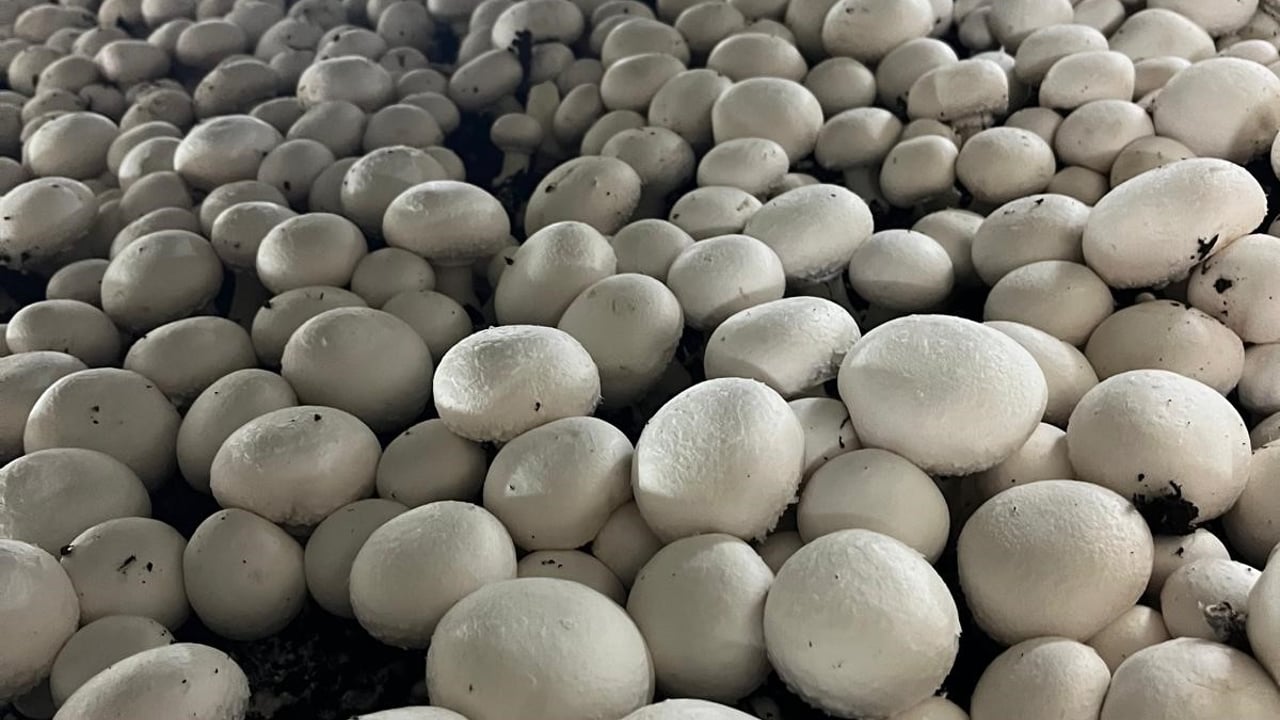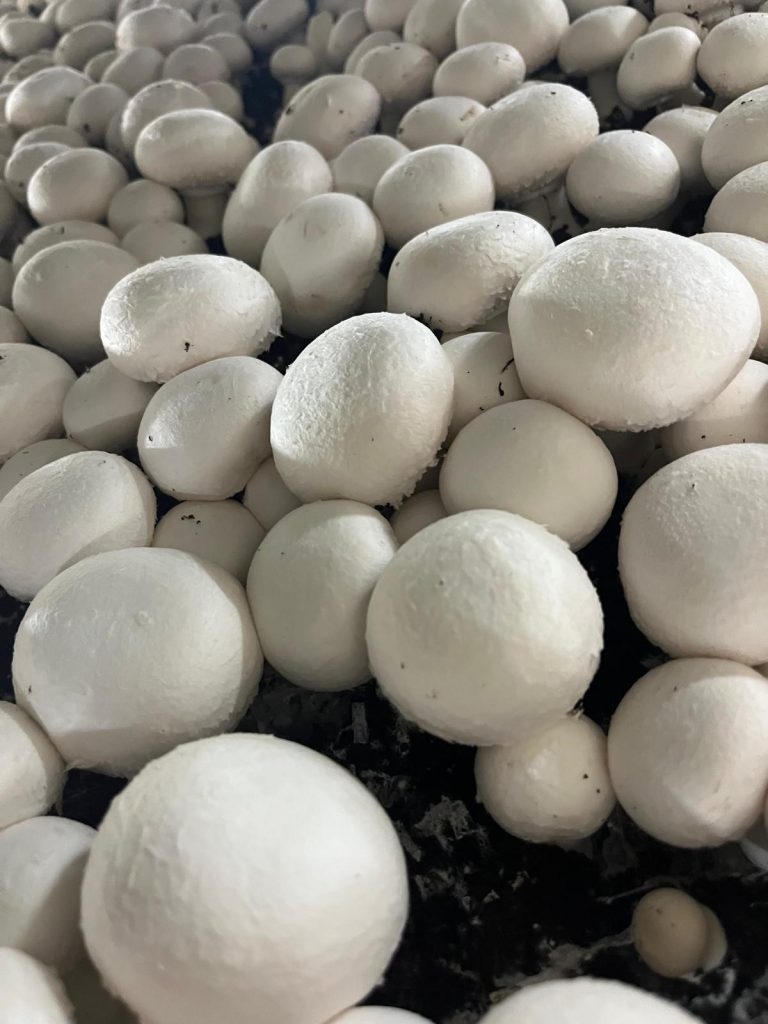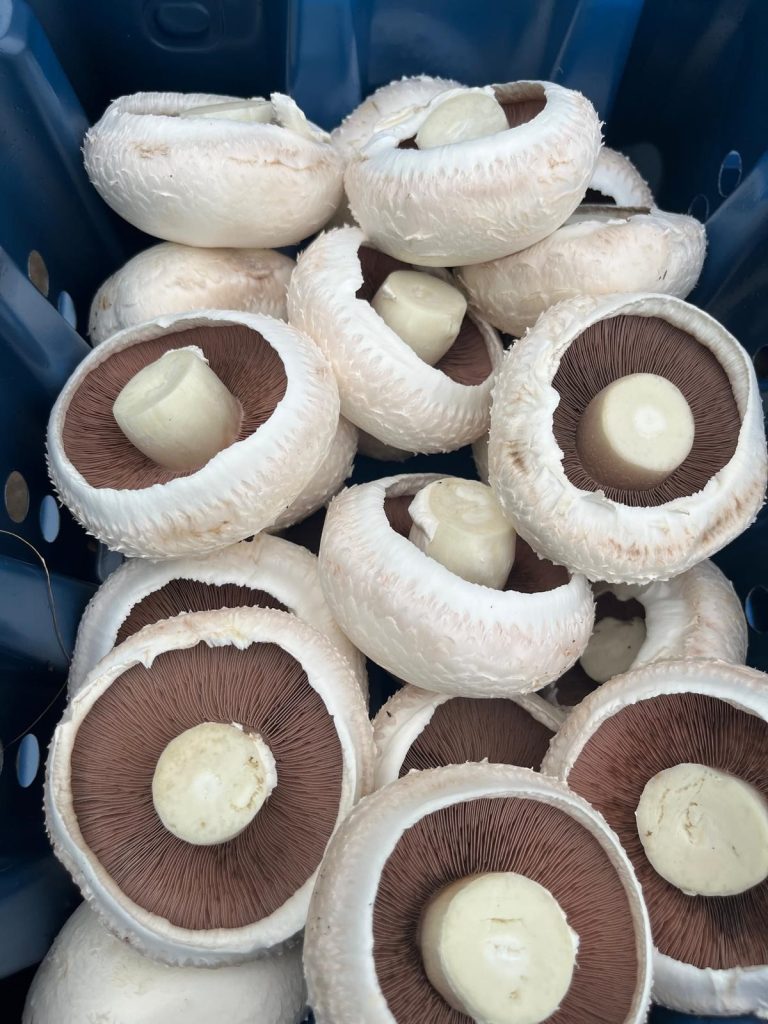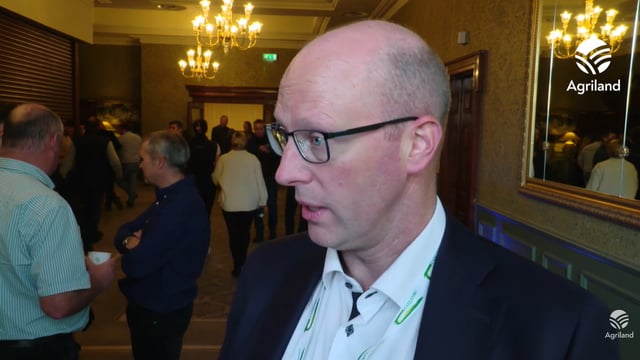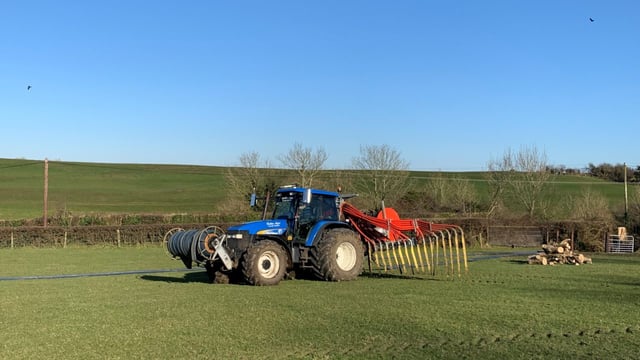Tiernaneill Mushrooms undertakes major peat replacement project
As the horticulture sector works to move away from peat as a growing medium, Tiernaneill Mushrooms has carried out a comprehensive project on peat replacement casing.
Over the decades, peat has become an essential component in the production of plants and mushrooms in professional horticulture.
However, due to environmental concerns the Irish mushroom industry will be required to phase out the use of conventional peat as its casing substrate, potentially by 2030.
Peat
Established in Co. Monaghan in 1999, Tiernaneill Mushrooms employs 200 people across four production sites in Monaghan and one in Co. Cavan.
The company produces over 200t of fresh white and brown mushrooms every week, with the majority of that produce being exported to the UK.
As part of its project, Tiernaneill Mushrooms used Harte Peat’s peat-free casing to successfully grow mushrooms on a full-farm scale and calculated the environmental benefits.
Over a seven-month period, 118 mushroom tunnels across two full farms were cased with a non-peat material to experiment with growing conditions and evaluate performance.
This included 97 white mushroom crops and 21 brown mushroom crops.
Paul Bishop from Tiernaneill Mushrooms explained that the company is looking at alternatives ahead of the anticipated deadline to remove peat as a growth medium in the horticulture industry.
"We've had the opportunity of working with Harte Peat. They've given us access to their peat free product.
"We've had the opportunity, with the assistance from the department of agriculture, to have a full farm trial on two of our locations to see if we can use that particular product, peat free on a full farm basis to remove our reliance on peat from our day-to-day cropping," he told Agriland.
Peat free
Bishop said that the whole project began at the end of March.
"It took us until July to transition the farms week by week as the crops came out of service, and put our new crops in with the peat free to bring us up to the whole farm basis.
"From July until the end of the project, our target was to run the whole two farms, white flats and brown mushrooms on peat free," Bishop said.
Bishop explained that water had to be added at the correct level to the peat-free product mix, as water is very important in the growing cycle for mushrooms.
This involved an additional labour cost, as a skilled person had to be trained to manage the application of water to the growing medium when it arrived.
"We had to spend an awful lot of time making sure we were able to apply the correct level of water into the system in order for us to be able to manage the new peat free casing in a suitable method, to be able to keep our yields at least where they were previously," he said.
Results
Despite a difficult summer of warm weather, high disease levels and inconsistent compost; Tiernaneill Mushrooms said that the "peat-free mushrooms were good quality with excellent shelf life".
Peat-free casing performed well on average, with some crops falling below target yield and other crops exceeding targets.
There was a 3% increase in yield for white crops when benchmarked against the same period last year. However, there was a 2% decrease in brown crop yields.
A detailed study carried out as part of the project also found that mushrooms grown on peat-free casing had a 76% lower carbon footprint than those grown on standard peat.
Future
Following the project, Tiernaneill Mushrooms concluded that the peat-free casing supplied by Harte Peat is an environmentally-friendly, viable replacement for deep-dug peat.
However, the company said that further support is required to develop the growing process to maximise its full potential and help the mushroom industry to be peat free by 2030.
Bishop explained that more work will be needed to see how the peat-free product performs during the winter period.
As there is an associated cost with the non-peat product for Tiernaneill Mushrooms, he said the company will also have to work with their final customers to see if this is a product that "matches their needs".
Tiernaneill Mushrooms will be among the speakers on the Mushroom Casing Alternatives Research webinar, hosted by Teagasc.
The webinar, which is taking place at 2:00p.m tomorrow afternoon (Thursday, October 30), is open to all.

